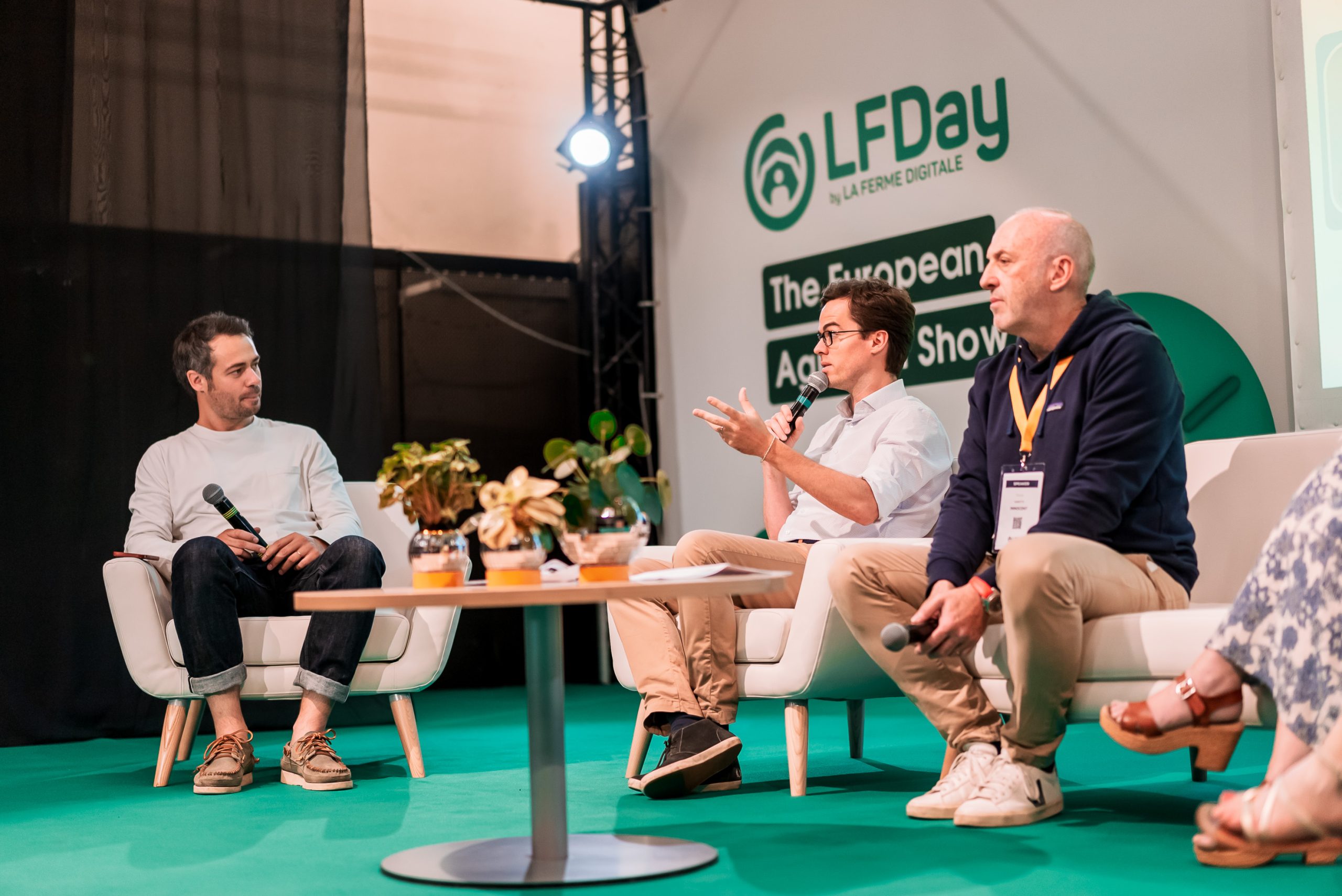
Committing to sustainably transforming food
At the 7th edition of LFDay, the annual event organised by La Ferme Digitale championing innovation in European agriculture, Cniel took part in an insightful round table focusing on business engagement, alongside MiiMOSA, Bel Group, Innocent and Salesforce. This was an ideal opportunity to chart the major developments in consumer behaviour and the ensuing challenges ahead for agricultural sectors.More informed and discerning consumers
« Consumers today aspire to a more responsible lifestyle, which has a direct impact on the food they buy and consume », observes Romain Le Texier, Research Director at the Cniel. « Yet enjoyment is paramount, even if it doesn’t correspond to the same products, which can vary from generation to generation. »
This heightened consumer interest in food provenance, production methods and ingredients, and more generally speaking, corporate responsibility, is also reflected in the job market. The values embodied by employers and their economic, social and environmental actions are now fundamental for the majority of applicants.
This heightened consumer interest in food provenance, production methods and ingredients, and more generally speaking, corporate responsibility, is also reflected in the job market. The values embodied by employers and their economic, social and environmental actions are now fundamental for the majority of applicants.
Heighten transparency, stamp out greenwashing
In this context, agricultural sectors and food industries must reinforce both their engagements and their transparency, so as to better inform stakeholders and establish solid and lasting relationships built on trust.« The need for communication needs to be free from any greenwashing ,»t, warns Nicolas Marotte, Managing Director of Innocent. « Communicating misleading information regarding a company’s commitments will only be counter-productive for the entire chain. »
For Marie Petitcuénot, Head of Impact and Equality Lead at Salesforce, « The age of storytelling has ceded to the age of data mania; what counts now is being able to measure impact and provide proof of your actions.. » There are numerous labels and certifications that aim to evaluate, quantifiably and reliably, the actions undertaken by companies and the responsibility of products on the shelf.
Designated and certified as a b-corp in 2018, Innocent is a firm believer in the strength of brands to be « powerful amplifiers of environmental issues », explains its Marketing Director. Measure is key to progress, therefore, but also to promote a virtuous economic model to the market and consumers.
For Marie Petitcuénot, Head of Impact and Equality Lead at Salesforce, « The age of storytelling has ceded to the age of data mania; what counts now is being able to measure impact and provide proof of your actions.. » There are numerous labels and certifications that aim to evaluate, quantifiably and reliably, the actions undertaken by companies and the responsibility of products on the shelf.
Designated and certified as a b-corp in 2018, Innocent is a firm believer in the strength of brands to be « powerful amplifiers of environmental issues », explains its Marketing Director. Measure is key to progress, therefore, but also to promote a virtuous economic model to the market and consumers.
A necessary collective dynamic
The power of influence is even greater since engagement must not be restricted to the companies alone but must form a real collective dynamic involving every actor along the chain. Emmanuelle Paille, Director of CSR and Communications, Bel France, reinforces the point: « One of the key elements in CSR is successfully transforming a company’s commitments into collective plans and engaging in common discussions involving public authorities, producers, processors, distributors, consumers and associations. »
At the heart of this collective engagement approach is the question of producer remuneration. « The environmental transition of food can only take place if each segment of the chain can benefit, »recalls Romain Le Texier.« Rewarding farmers for their true worth is providing them with the means to transform sustainably. » This is a reality of which consumers seem woefully unaware, regrets the Cniel Research Director, who highlights the shortfall between the intentions and the actions of future generations : « Young people are more aware of environmental and societal issues, but paradoxically, they cook less and prioritise practicality in their eating behaviours. »
At the heart of this collective engagement approach is the question of producer remuneration. « The environmental transition of food can only take place if each segment of the chain can benefit, »recalls Romain Le Texier.« Rewarding farmers for their true worth is providing them with the means to transform sustainably. » This is a reality of which consumers seem woefully unaware, regrets the Cniel Research Director, who highlights the shortfall between the intentions and the actions of future generations : « Young people are more aware of environmental and societal issues, but paradoxically, they cook less and prioritise practicality in their eating behaviours. »

Adding value to food for long-term actionsur la durée
Empowering consumers in terms of sustainable development has therefore become essential, and requires improved justification of pricing as well as reevaluating food as a lever for action. Indeed, Emmanuelle Paille has made this her mantra: « Vote with the food on your plate ».
In a world shaken by health, geopolitical and economic crises, it is often tempting to think in the short term, but creating lasting value requires work over the long-term. « It is the foundation of interprofessional bodies like the Cniel, » concludes Romain Le Texier.
In a world shaken by health, geopolitical and economic crises, it is often tempting to think in the short term, but creating lasting value requires work over the long-term. « It is the foundation of interprofessional bodies like the Cniel, » concludes Romain Le Texier.

undefined 02/08/2024
undefined 09/09/2024

